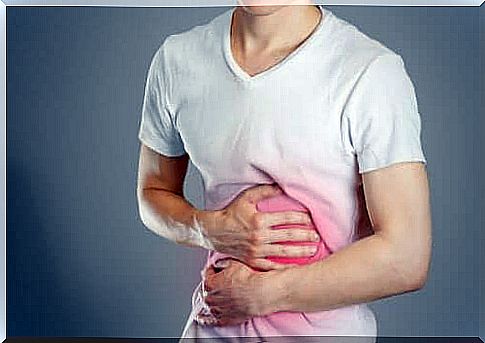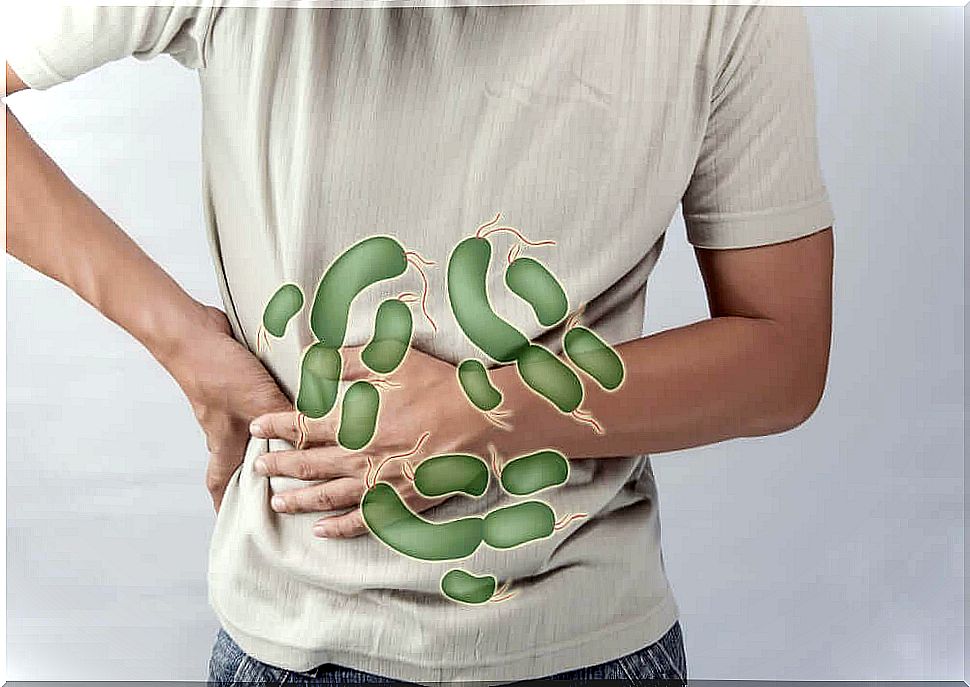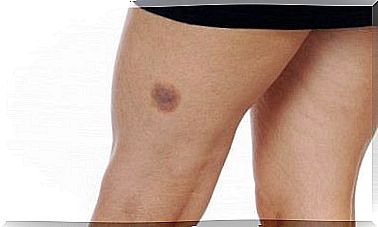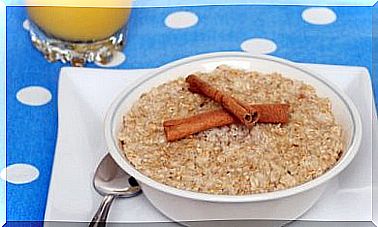Hypochlorhydria: What Is It?
Hypochlorhydria is a reduced formation of hydrochloric acid in the stomach. One might think that this is beneficial for gastritis, but it is a disease. Find out today how it happens and what you can do about it.

As Hypochlorhydria refers to a decreased production of hydrochloric acid in the human body. Hydrochloric acid is released through the parietal cells of the stomach lining in a controlled environment.
Hydrochloric acid (HCl for short) takes on various very specific functions in the stomach. These are essential to protect the organism from external agents and to enable digestion.
Under normal circumstances, when the self-regulatory mechanism is working properly, gastritis and hypochlorhydria will not occur. But if too little hydrochloric acid is produced, it is called hypochlorhydria or achlorhydria if no hydrochloric acid is present.
Hydrochloric acid takes on the following functions in the stomach:
- It is used to break down proteins that we ingest in order to be able to process them.
- In addition, hydrochloric acid is involved in the digestion process of carbohydrates.
- It also destroys harmful microorganisms that can enter the body through diet.
The decreased production of hydrochloric acid does not appear to be severe, but hypochlorhydria is associated with gastric cancer. Patients who suffer from it for a long time are more susceptible to this type of tumor.
Causes of hypochlorhydria
Various triggers for hypochlorhydria have been identified over time. The main ones include the following:
- Stress and nervousness: The most important triggers for the reduced formation of hydrochloric acid are stress and nervousness. In this situation, the cells can stop producing hydrochloric acid.
- Aging: With increasing age, our cells lose their functionality. Therefore, hormone production can also be impaired due to age, which in turn can lead to a reduced formation of hydrochloric acid. Because when there is less gastrin, the parietal cells slow down their metabolism. It is estimated that around 30 percent of people over the age of 60 are affected.
- Antacid abuse: Patients with recurrent gastritis are at risk from taking too many drugs, such as ranitidine or omeprazole. These medicines block acid production and relieve the symptoms of gastritis. Although they produce the desired effects, abuse can lead to hypochlorhydria.
- Pituitary Disorders: When the pituitary gland is not working properly, it can disrupt the hormonal lines of communication between gastrin and histamine.
- Hypothyroidism: This thyroid disorder affects many body functions because too few thyroid hormones are produced. Gastrin and histamine production is also affected.
- Gastric Surgery : Certain surgical procedures are invasive and affect the production of hydrochloric acid. In particular, if a part of the stomach dries out as a result of surgery, hypochlorhydria can subsequently occur.

What symptoms does a reduced formation of hydrochloric acid trigger?
It is not easy to determine that the formation of hydrochloric acid is too low. The symptoms are similar to other diseases and are therefore easy to confuse.
If a reduced formation of hydrochloric acid is suspected , various diagnostic methods can help rule out other diseases.
The following symptoms are very common:
- Changes in the digestion of meat: The processing of meat is disturbed, it also takes place more slowly.
- Gas formation and flatulence: digestion is slower due to the lack of hydrochloric acid. In addition, gases are produced in the intestine.
- Anemia: Hypochlorhydria leads to a decreased absorption of nutrients. Iron and vitamin B12 are also affected, which can lead to chronic anemia that is difficult to control.
- Gastroenteritis: As there is no protection against external microorganisms, the risk of repeated infectious gastroenteritis is greater.
- Too high a cholesterol level: the lack or deficiency of hydrochloric acid, which is necessary for digestion, disrupts the process of fat absorption. As a result, the blood lipid levels can increase significantly.

Treatment options for hypochlorhydria
Once the doctor identifies a condition that is causing hypochlorhydria, such as hypothyroidism, they will focus on treating that underlying condition directly. Once the disorder is resolved, the symptoms should go away too.
However, if the cause is not clearly clarified, general measures are required. This enables the body to resume the correct production of hydrochloric acid. These measures include the following:
- Chewing slowly: As is well known, digestion begins in the mouth by chewing the food ingested. Important mechanisms are set in motion and the organism has time to produce the hormone gastrin, among other things.
- Hot teas: Hot drinks after meals stimulate the formation of hydrochloric acid. This natural mechanism can easily be used by anyone. The opposite is the case with cold water: It inhibits the formation of hydrochloric acid and is therefore not recommended for hypochlorhydria.
- Natural supplements: Apple cider vinegar, honey and sea salt also stimulate the formation of hydrochloric acid. They can serve as a supplement in addition to other measures.
Final summary
A reduced formation of hydrochloric acid can lead to various digestive problems. This disorder is also associated with anemia and high cholesterol. It is therefore important to see a doctor who can make an appropriate diagnosis. Once the exact causes are established, the doctor will prescribe the correct treatment.









